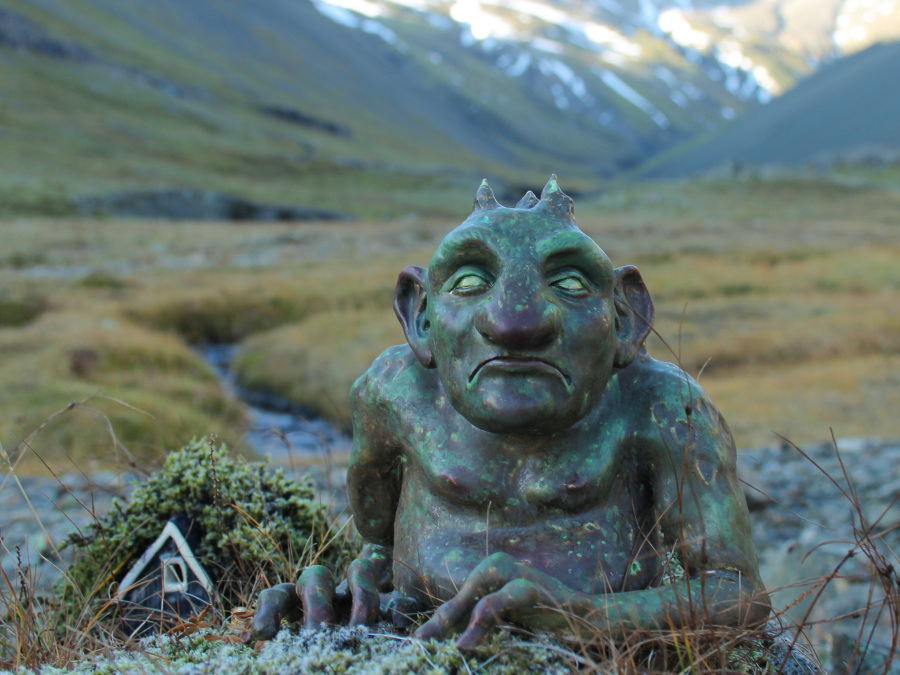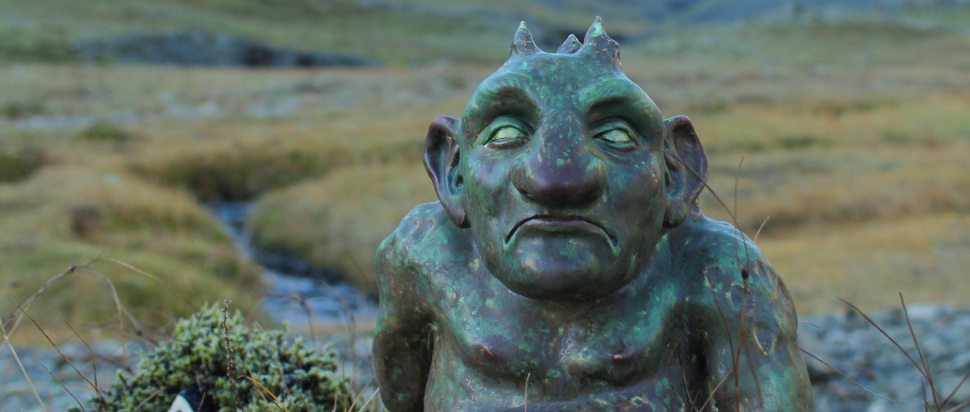True North: Scottish International Storytelling Festival returns
Storytellers Tom Muir and Eileen Budd and programmer Daniel Abercrombie introduce the 36th Scottish International Storytelling Festival, which looks to the folklore, myths and fairytales of the Nordic region, Scotland and Northern Europe
Lights of the North, the 36th edition of the Scottish International Storytelling Festival, brings together the storytelling cultures of Scotland, Scandinavia and Germany for a 2025 programme full of folklore, myth and fairytale. Because where better to look than north for recognition that as the dreich nights draw in, stories are there to keep our spirits afloat? “The dark nights of winter were made for storytelling by the fireside,” says Orcadian storyteller Tom Muir.
Yet, in speaking with him, it becomes clear that – contrary to common presumptions that the tales of our past have always been happily valued and preserved – much Northern folklore survives thanks to a continual and concerted effort to keep it alive, even in the face of powers whose interests clash with storytelling’s myriad empowering benefits. “When I was a child [in Orkney],” says Muir, “fairytales were only found in books. Orkney had lost its storytelling culture in the 19th century as the church clamped down on what it saw as ignorant superstitions. Later, people were taught to despise the old tales as 'rubbish'.”
Such revelations mirror our current global climate, in which the ruling class seem set to discourage and suffocate intellectual and emotional education in favour of pushing their own self-serving ideologies. Muir’s childhood tale is a reminder of the ways in which history repeats itself, and how it is in the hands of the people to light alternative paths. “I was in my early 20s before discovering that Orkney once had a rich tradition of folk tales,” he says. “I have dedicated most of my life to resurrecting our lost tales, making them available in books, spreading them as a storyteller, encouraging others to use them… During dark times we need to turn to our ancient tales for comfort, compassion and hope.”
These are dark times indeed: violent invasion and occupation befalls Ukraine and Gaza; far-right movements take hold around the UK, US and Europe. And while Lights of the North is less overtly motivated by our political past and present than SISF’s editions immediately prior to this one (2023’s programme marked the 75th anniversary of the Universal Declaration of Human Rights, and 2024’s marked 35 years since the fall of the Berlin Wall), the idea of looking back in order to better understand the world around us is a tenet of folklore. “Our stories are a multi-generational community memory bank,” says Perthshire-born storyteller Eileen Budd. “I believe in [their] importance for providing better understanding of our identities, culture and heritage as well as the role they can play in communicating complex ideas which can transcend language, culture and backgrounds.”

Ceramic by Hester Aspland.
There are "some beautiful crossovers between Scottish, Scandinavian, Nordic, Greenland and North America” in terms of their folklore, she says, and given that many of the stories are influenced by the same sea and sky across which we all look out (not to mention the history of passage and migration throughout the regions), it is no coincidence. “In these great expanses we can find connections with other people who might be a great distance away from us geographically but are close to us in our stories.”
For Daniel Abercrombie, leading a team of four programmers, following the crossovers as mentioned by Budd has been central to the programming of Lights of the North. The title invokes the Aurora Borealis that can be seen from Scotland, Canada, Finland, Norway, Iceland, Sweden, Greenland and the Faroe Islands, where respective stories personify the lights as merry dancers, playful spirits, the reflections off valkyries’ armour and the shimmering Bifrost bridge connecting the living and the dead. But whether through festival partnerships or the way stories have travelled and become global (European fairytales have long been reinterpreted as Disney movies, for example, and Marvel owes a huge debt to Norse mythology for super-siblings Thor and Loki), the events have a wide international outreach.
Alongside Nordic-inspired events featuring Muir (Stories Drawn from the Land, an exhibition by Hester Aspland; The Return of the Vikings; Orkney Storytelling Festival) and Budd (Land of Many Waters; Picts & Vikings), we’re taken as far as Ghana by African folklorist Chief Gift Amu-Logotse via Wild Wings of Hope, presented in partnership with the National Museum of Scotland. And from Germany, Anna Lehr hosts a workshop of Gruesome and Grimm Tales where she’ll teach the warts-and-all versions of the beloved yet sanitised children’s stories we’ve come to know and love via their myriad TV and film adaptations. See the full festival programme for all events across Edinburgh, Glasgow, Dundee, Inverness, Fife, Aberdeen, Orkney and beyond.
Scottish International Storytelling Festival takes place across Scotland, 22 Oct-1 Nov, sisf.org.uk
